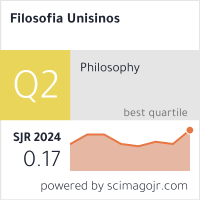A posteriori physicalism and phenomenal concepts: The a priori synthesizable objection
DOI:
https://doi.org/10.4013/fsu.2017.183.08Resumen
The aim of this paper is to critically assess and respond to two objections advanced by Daniel Stoljar (2005) against the so-called phenomenal concept strategy. My goal is to defend the physicalist response to both the knowledge argument and the conceivability argument against Stoljar’s objections. Regarding the conceivability argument, I want to show that the distinction mobilized by Stoljar between a priori and a priori synthesizable does not help us to elucidate the psychophysical condition for that is a clear disanalogy between the cases presented by Stoljar. Regarding the knowledge argument, I want to show that Stoljar’s argument about experienced Mary undermines the fundamental premise of the knowledge argument and therefore it cannot be mobilized to deflate the phenomenal concept strategy against the knowledge argument. My conclusion will be that Stoljar’s points are ineffective against the phenomenal concept strategy.
Keywords: phenomenal concept, conceivability, physicalism, knowledge argument.
Descargas
Métricas
Descargas
Publicado
Cómo citar
Número
Sección
Licencia
Concedo a revista Filosofia Unisinos – Unisinos Journal of Philosophy o direito de primeira publicação da versão revisada do meu artigo, licenciado sob a Licença Creative Commons Attribution 4.0 (que permite o compartilhamento do trabalho com reconhecimento da autoria e publicação inicial nesta revista).
Afirmo ainda que meu artigo não está sendo submetido a outra publicação e não foi publicado na íntegra em outro periódico e assumo total responsabilidade por sua originalidade, podendo incidir sobre mim eventuais encargos decorrentes de reivindicação, por parte de terceiros, em relação à autoria do mesmo.










